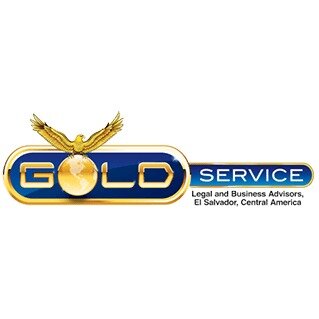Best Environmental Law & Compliance Lawyers in El Salvador
Share your needs with us, get contacted by law firms.
Free. Takes 2 min.
Or refine your search by selecting a city:
List of the best lawyers in El Salvador
About Environment Law in El Salvador
Environmental law in El Salvador is a complex and evolving field that addresses the preservation and protection of the country's natural resources and biodiversity. As a country rich in ecosystems but facing significant environmental challenges, El Salvador's legal framework seeks to balance development with sustainable practices. The laws cover a wide range of issues, including waste management, water use, air quality, and land conservation, aiming to curtail environmental degradation and promote sustainable development.
Why You May Need a Lawyer
Seeking legal advice in the field of environment in El Salvador is crucial for several reasons. Individuals or companies may require legal assistance for compliance with local environmental regulations, addressing disputes or penalties related to non-compliance, obtaining necessary environmental permits for specific activities, or engaging in sustainable practices and environmental protection projects. Additionally, if you are concerned about environmental harm due to industrial activities or unregulated developments impacting your community, a lawyer specializing in environmental law can help address these grievances legally.
Local Laws Overview
El Salvador's environmental regulations are primarily governed by the General Law on the Environment, which establishes guidelines for environmental policy, planning, and management. Key aspects include the regulation of waste disposal and management, ensuring water quality, protecting natural areas and biodiversity, and monitoring industrial pollution. The law mandates Environmental Impact Assessments (EIAs) for various projects, ensuring that developmental activities consider ecological impacts. Moreover, local governments have specific bylaws addressing environmental concerns pertinent to their areas.
Frequently Asked Questions
What is the General Law on the Environment?
The General Law on the Environment is the cornerstone of environmental regulation in El Salvador. It outlines national environmental policies and responsibilities, aiming to promote sustainable development and the rational use of natural resources.
Are there specific regulations for waste management?
Yes, El Salvador has regulations that address the collection, treatment, and disposal of waste to minimize environmental impact. These laws require both individuals and businesses to manage waste responsibly and often mandate recycling and safe disposal practices.
How does the Environmental Impact Assessment (EIA) process work?
The EIA process involves a thorough analysis of the potential environmental impacts of proposed projects. This process is integral to obtaining development permits, ensuring that projects comply with environmental norms and mitigate possible damage to ecosystems.
Can individuals report environmental violations?
Yes, individuals can report environmental violations or concerns to the Ministry of the Environment and Natural Resources (MARN) or local authorities. The public plays a crucial role in monitoring and reporting non-compliance.
What penalties exist for violating environmental laws?
Penalties for non-compliance can include fines, suspension of activities, and revocation of permits. Severe violations may result in legal action and potentially criminal charges, depending on the nature and impact of the offense.
Is the government involved in environmental conservation?
The Salvadoran government actively participates in conservation efforts, establishing protected areas, promoting reforestation projects, and engaging in international environmental agreements to enhance global cooperation.
What role do local governments play in environmental law?
Local governments in El Salvador enforce national environmental laws and may implement additional regulations specific to regional ecological conditions and challenges.
How are air quality issues addressed?
Air quality is regulated through standards that limit emissions from industrial activities and vehicles. The government monitors air pollution levels and implements policies aimed at reducing harmful emissions.
Are there incentives for businesses to adopt green practices?
Yes, businesses that adopt environmentally friendly practices may benefit from incentives such as tax breaks, grants, and recognition programs that encourage sustainable operations and innovation.
How can I learn more about environmental initiatives in El Salvador?
Information about environmental initiatives is available through government websites, local NGOs, and community organizations that work on environmental protection and education.
Additional Resources
For further assistance, here are some key resources related to environmental law and protection in El Salvador:
- Ministry of the Environment and Natural Resources (MARN) - the main governmental body overseeing environmental regulations and policies.
- Salvadoran Center for Appropriate Technology (CESTA) - an NGO focused on sustainable development and environmental advocacy.
- Local municipalities - provide resources and support for community-level environmental concerns and compliance questions.
- El Salvador's Environmental Tribunal - handles disputes and infractions related to environmental law.
Next Steps
If you require legal assistance regarding environmental issues in El Salvador, consider the following steps:
- Consult with a specialized environmental lawyer to discuss your specific concerns or requirements.
- Gather any relevant documentation or evidence regarding your issue, such as permits, contracts, or photographic evidence of potential environmental harm.
- Reach out to local or national environmental bodies to report issues or seek guidance on regulatory compliance.
- Engage with community organizations or NGOs that may provide support or resources for your environmental concerns.
Navigating environmental law can be complex, but with the right support and information, you can effectively address your legal needs in El Salvador.
Lawzana helps you find the best lawyers and law firms in El Salvador through a curated and pre-screened list of qualified legal professionals. Our platform offers rankings and detailed profiles of attorneys and law firms, allowing you to compare based on practice areas, including Environmental Law & Compliance, experience, and client feedback.
Each profile includes a description of the firm's areas of practice, client reviews, team members and partners, year of establishment, spoken languages, office locations, contact information, social media presence, and any published articles or resources. Most firms on our platform speak English and are experienced in both local and international legal matters.
Get a quote from top-rated law firms in El Salvador — quickly, securely, and without unnecessary hassle.
Disclaimer:
The information provided on this page is for general informational purposes only and does not constitute legal advice. While we strive to ensure the accuracy and relevance of the content, legal information may change over time, and interpretations of the law can vary. You should always consult with a qualified legal professional for advice specific to your situation.
We disclaim all liability for actions taken or not taken based on the content of this page. If you believe any information is incorrect or outdated, please contact us, and we will review and update it where appropriate.
Browse environmental law & compliance law firms by city in El Salvador
Refine your search by selecting a city.













